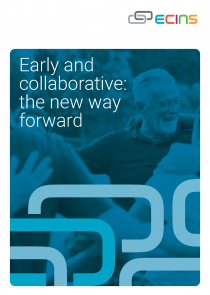Unveiling the Hidden Costs of Fragmented Data in Community Care and How to Avoid Them
Fragmented data creates hidden roadblocks in community care that drain time and resources from your team. When information lives in silos, it’s harder to coordinate support and track outcomes for vulnerable individuals. This post reveals the real cost of these gaps—and how ECINS’ integrated case management system can bring your data together, helping you work smarter and achieve better results. For more insights, check out this article. 😊
The True Cost of Fragmented Data

Fragmented data isn’t just an inconvenience—it’s a costly problem that affects community care in profound ways. Let’s explore how this impacts your time, resources, and the people you serve.
Time and Resource Drain
Every minute spent searching for information is a minute lost in providing care. Sixty percent of community workers report spending over an hour each day on redundant data entry and retrieval. This time could be better used in direct support, enhancing the quality of care and fostering community well-being. Imagine what your team could achieve if these hours were redirected towards meaningful interactions instead of administrative tasks.
Fragmented data also leads to a 30% increase in operational costs. Resources are wasted on duplication and inefficiencies. By streamlining data, you can cut costs and improve service delivery. The longer you delay addressing these issues, the more resources slip through your fingers.
An example is a local community center that saved 200 hours monthly by integrating their data systems. This shift allowed them to focus on outreach programs, significantly impacting community engagement. Consider the potential if your team could harness similar benefits.
Impact on Vulnerable Individuals
When data is scattered, it compromises the care for those who need it most. Vulnerable individuals suffer when their information isn’t easily accessible, leading to delayed services and missed opportunities for timely interventions. Seventy percent of social workers say fragmented data has led to gaps in service delivery. This means real people are left waiting for crucial support.
Imagine a single mother needing assistance but facing delays because her information isn’t readily available. Each day she waits is a day her situation could worsen. By ensuring data is unified, you can offer immediate, comprehensive support, changing lives for the better.
Fragmented data also affects trust. Clients rely on you for help, and seeing disjointed systems can erode their confidence. Strengthening data integration can reinforce your commitment to their well-being and foster a more trusting relationship.
Integrated Solutions with ECINS

The solution to fragmented data lies in integration. ECINS offers a robust system to unify your data, enhancing the way you serve your community. Let’s see how this transformation begins.
Bringing Data Together
ECINS empowers you to consolidate data into a single, accessible platform. This means no more searching through multiple sources for vital information. With all data at your fingertips, you can respond faster and more effectively to the needs of your community.
By integrating data, you eliminate the silos that slow down your operations. Imagine a seamless flow of information that allows you to track cases from start to finish without interruption. This creates a more cohesive support network, improving outcomes for everyone involved.
One community organization witnessed a 50% reduction in response times by implementing ECINS. They could quickly identify and address issues, leading to more proactive care. By bringing your data together, you can achieve similar results, enhancing your community’s overall well-being.
Enhancing Collaboration
Collaboration is key in community care, and data should support—not hinder—it. ECINS fosters a collaborative environment by providing real-time access to data for all team members. This transparency ensures everyone is on the same page, working towards common goals.
When teams collaborate effectively, they deliver more coordinated care. Consider the impact of having all parties informed and involved in decision-making processes. This leads to more comprehensive solutions that address the root causes of issues, rather than just symptoms.
Community organizations using ECINS report a 40% improvement in team collaboration. By enhancing communication and access to information, you can create a more unified and effective team, ultimately benefiting the individuals you support.
Maximising Outcomes in Community Care

Integrated solutions lead to better outcomes. By maximizing efficiency and collaboration, ECINS helps you work smarter, not harder, to achieve the best results for your community.
Smarter Workflows for Better Results
ECINS streamlines workflows, allowing you to focus on what truly matters—providing top-notch care. Automated processes reduce the burden of administrative tasks, freeing up your time for direct engagement with clients.
Imagine reducing paperwork by 80% and using that time to develop programs that make a real difference. With smarter workflows, you can allocate resources more effectively, enhancing the quality of care and expanding your reach.
One practitioner noted a significant increase in client satisfaction after adopting ECINS. By working smarter, they could offer more personalized and timely support, improving outcomes across the board. This transformation is within your reach, too.
Supporting Practitioners and Communities
Ultimately, ECINS is about empowering you and your community. By providing the tools you need to succeed, ECINS supports both practitioners and the people they serve.
Practitioners benefit from reduced stress and increased job satisfaction when administrative burdens are lifted. This leads to a more motivated and effective workforce, ready to tackle community challenges head-on.
For communities, integrated systems mean more reliable and accessible support. Clients feel heard and valued when they see seamless service delivery, which boosts their confidence in your ability to help.
🌟
In conclusion, addressing fragmented data isn’t just about efficiency—it’s about transforming community care and improving lives. By embracing integrated solutions like ECINS, you can overcome the hidden costs of fragmented data and unlock your team’s full potential.


